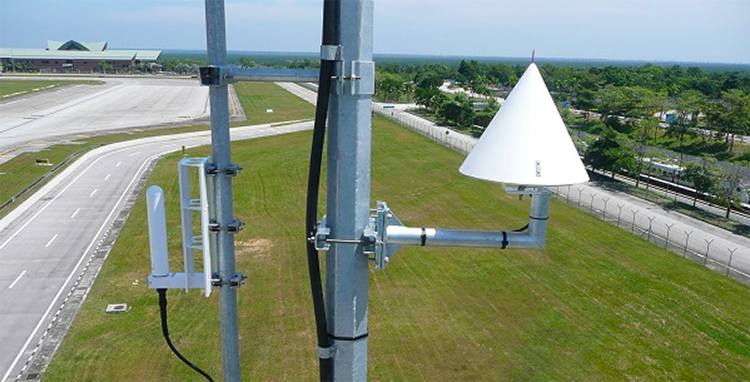ERA enhances its WAM system for Air Traffic Control in the East Midlands Airport area
ERA’s Wide Area Multilateration (WAM) system around East Midlands International Airport is about to be upgraded. In light of the Covid19 situation, part of the usual processes will be handled by ERA from a distance.
The customer Manchester Airports Group Plc (MAG) approved the operations of the composite WAM and ADS-B system for the end user East Midlands International Airport Ltd (EMA) in 2008. ERA was awarded the contract for its upgrade in January 2020. The main purpose of the system is to provide Air Traffic Control services in the EMA terminal manoeuvring area, including surveillance of approaching aircraft in terms of their noise over inhabited areas. The data are sent to the involved authorities.
East Midlands Airport uses multilateration and ADS-B technologies for surveillance to increase air traffic safety as a complement to the operational SSR. The Multi-Sensor Surveillance System by ERA (MSS) for EMA is based on Distributed Time Architecture and consists of the net of Ground Stations (six Receiving stations and two Transmitting stations). The current upgrade will replace 6 (plus 2) processing modules D03 and 2 (plus 1) interrogating T02 due to implementation of the new software version. It has the ambition to become the full-fledged replacement of the current SSR if needed.
Considering the unprecedented situation with the Covid19 disease, hence the border closure, the actual replacement of the modules will be provided by EMA technicians with remote support by ERA experts for software implementation and calibration. The whole process is planned for April and May 2020.
On the Multi-Sensor Surveillance System
ERA’s MSS ground station architecture consists of a number of modules, each representing a single line replaceable unit and each built to perform under extreme environmental conditions. Each station is configured for a specific purpose – receiver, interrogator, reference transponder, etc. – by selecting the required set of the off-the-shelf modules. The individual modules are enclosed in an aluminium alloy box that meets IP67 protection standards – the protective standard for human contact as well as an indication of how well the device resists the entry of solid objects and water.
